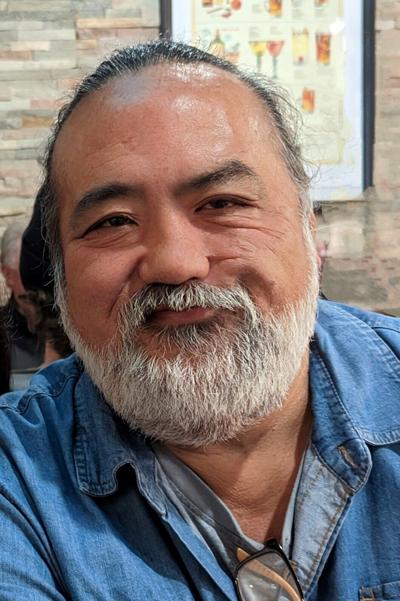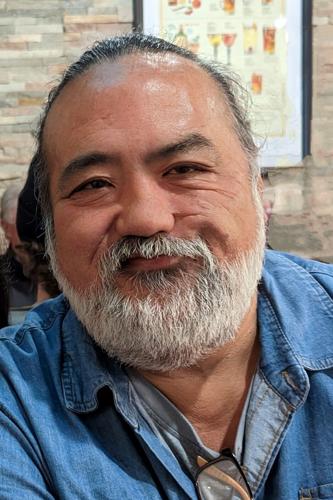The man didn’t want to talkĚý— that much was clear.ĚýLiving below a bridge in the Rosedale ravine, and in the grips of a severe mental illness, it was the kind of case that could feel impossible to untangle, even to Toronto’s veteran street outreach workers. But city hall’s Brent Kitagawa was willing to wait.
Again and again over the course of a year, Kitagawa would show upĚý— recognizable in his quintessential denim shirt, which colleagues joked would remain casually unbuttoned in even the most treacherous of winter weather. He didn’t turn up empty-handed, regularly bringing the man a little something to eat or a hot cup of coffee. Slowly but surely, a fragile trust began to form.
As it deepened, Kitagawa was able to offer bits of aid. Still, he knew there was a bigger task at hand: finding housing the man could thrive in, in a city where affordable and subsidized options are an increasingly scarce commodity. When that finally came together a year later, it felt to Kitagawa’s colleagues like a miracle. “That was BrentĚý—Ěýlike a magician without any props, performing tricks and making wonderful things happen,” recalled colleague Mark Wilson.
But this summer, the affable outreach worker-turned-team supervisor’s seemingly endless miles of walking Toronto’s streets, parks and ravines came to an unexpected end. Kitagawa — who, beyond his work in street outreach, was a much-loved partner, brother, father and “Bampa” to his grandchildrenĚý— suffered a stroke from which he never recovered. HeĚýdied in July at age 63.
His death marks the end of a quiet, constant watch over Toronto’s streets.ĚýColleaguesĚýsay that, while Kitagawa’s work was largely invisible, it made a tangible dent in the surging tide of the city’s homelessness crisis. Without fanfare, he racked up a prolific housing record, finding permanent shelter for 47 people within 2021 aloneĚý— a success rate Wilson said he’d never seen within the city’s own street outreach ranks.
Now, front-line workers are coming to grips with a city without his presence. At the All Saints community centre in Moss Park, community worker Diana Chan McNally says she’s already seen her colleagues struck by the jarring realization they can no longer text Kitagawa for help. “It’s just a huge loss for everybody. Because he literally saved many, many people’s lives.”
Doug Johnson Hatlem, who spent years as an outreach worker with Sanctuary Toronto, recounted a situation involving an Afghanistan war veteran who had landed on the TorontoĚýstreets while battling post-traumatic stress disorder, after outbursts gotĚýhim kicked out of multiple shelters. Finding an indoor emergency space that would still accept the man felt like an uphill battle. “I had given up, and most workers would have given up,” he said.
But last February, a text came out of the blue. Though the city’s shelter intake team that month was forced to turn away an average of 72 people daily for lack of space, complicated further by the number of facilities that had already barred the man from entering, Kitagawa had been looking constantly for a solutionĚý— and it had finally paid off. And it was one of three such cases Kitagawa solved in ten days, Hatlem Johnson said. “He just quietly persisted.”Ěý
Kitagawa’s work didn’t end when a person was housed; he often kept tabs on people to ensure they didn’t slip back into homelessness.ĚýFollowing Kitagawa’s death, Wilson said he checked on the man who once lived in the ravine. To Wilson’s delight, he remained housed many years later.Ěý
It was that care and persistence, along with Kitagawa’s honesty when he couldn’t offer a solution just yet, that Johnson Hatlem says endeared him to even fierce critics of city hall. “He was a giantĚý— and if he’d been working among other giants, he still would have stood head and shoulders above.”
HeĚýearned a reputation in Toronto’s social service sector, saidĚýcolleague Ertha Downey, who first heard of Kitagawa while working outside of city hall. “If we could just get that Brent guy from Streets (to) Homes, we could house all of our clients,” Downey recalled a co-worker quipping in 2020.
Sarah Ovens, a case manager at All Saints, has found herself since Kitagawa’s death calling other city workers to ask about assistance he often offered, only to learn that was never technically part of his job. “He didn’t go by what was in the job description, he went by ‘what does the person in front of me need?’” Ovens said, offering the example of chasing down someone’s tax paperwork.Ěý
As front-line workers remember Kitagawa as unflappable, patient and calm, his family’s own memories suggested it was a deeply entrenched nature. His brother Neil, in an email, recalled their childhood bunk bed collapsing in the night, and Kitagawa simply going back to sleep.Ěý
His aunt, Donna Murakami, remembers her nephew’sĚýpersistence. Informed at the age of 10 he was too young for a newspaper route, Murakami remembers Kitagawa convincing his mother to contact the area manager for the paper and make his case for taking on the responsibility.
Beyond his lauded work with the city’s homeless population, those who knew Kitagawa shared a flood of memories ranging from his “delightful deep laugh” to his miscellaneous assortment of interestsĚý— able to chat about cooking shows, tea ceremonies, the origin of a chandelier at a restaurant, the best place to buy a pork chop or where to getĚýfurniture repaired well.
When colleague Wendy McCarroll Gallegos was struggling with a relationship ending,ĚýKitagawa offered to help her after a long day by lending a hand assembling furniture for her new home, whileĚýtalking through the challenges of such a big change. “Anyone who can joyfully put together Ikea furniture is a hero to me,” McCarroll Gallegos said. “In his presence, you felt listened to and cared for. He had a way of making others feel strong and encouraged to deal with whatever life brought.”
To Chan McNally, Kitagawa’s biggest legacy is the faith he instilled in city hallĚý— forged in his compassion and persistence with vulnerable Torontonians.Ěý
“I want people to know there are people like him inside, who are doing everything they can within bureaucracy to make sure no one is left behind.”Ěý




























To join the conversation set a first and last name in your user profile.
Sign in or register for free to join the Conversation